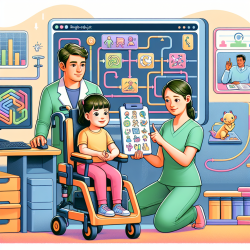Introduction
The COVID-19 pandemic has significantly impacted the health behaviors and mental well-being of university students worldwide. A recent study, "Prevalence of Health-Risk Behaviors and Mental Well-Being of ASEAN University Students in COVID-19 Pandemic," provides critical insights into these issues among students in the ASEAN region. This research offers valuable data that can inform practitioners in making data-driven decisions to improve health outcomes for students. In this blog, we will explore how these findings can enhance your practice and encourage further research.
Key Findings from the Research
The study surveyed 15,366 university students from 17 universities across seven ASEAN countries. Key findings include:
- 82% of students consumed sugar-sweetened beverages daily.
- 65.2% reported daily consumption of snacks/fast food.
- 52.2% consumed less than the recommended daily amounts of fruits and vegetables.
- 39.7% were physically inactive.
- 16.7% had low mental well-being.
- 8.9% smoked, and 13.4% drank alcohol.
These behaviors were significantly correlated with factors such as country of residence and body mass index (BMI).
Implications for Practitioners
Understanding these behaviors is crucial for practitioners working with university students. Here are some ways to implement these findings into your practice:
- Promote Healthy Diets: Encourage students to increase their intake of fruits and vegetables while reducing the consumption of sugar-sweetened beverages and fast food. Consider organizing workshops or webinars on healthy eating habits.
- Encourage Physical Activity: Develop programs or partnerships with local gyms to offer discounts or free access to students. Promote online fitness classes that students can join from home.
- Support Mental Well-Being: Provide resources and support for mental health, such as counseling services or mindfulness workshops. Create a safe space for students to discuss mental health issues without stigma.
- Tailor Interventions: Consider the cultural and environmental context of each country when designing health promotion programs. Customize interventions to address specific needs based on students' demographics and lifestyle behaviors.
Encouraging Further Research
While this study provides a comprehensive overview of health-risk behaviors among ASEAN university students, there is a need for further research to explore the underlying causes and long-term effects of these behaviors. Practitioners are encouraged to collaborate with academic institutions to conduct longitudinal studies that can offer deeper insights into the factors influencing students' health behaviors and mental well-being.
Conclusion
By integrating the findings from this research into practice, practitioners can play a pivotal role in promoting healthier lifestyles among university students. As we navigate the post-pandemic world, prioritizing health and well-being is more important than ever. Let's work together to create supportive environments that foster positive health behaviors and mental well-being for students across the ASEAN region.
To read the original research paper, please follow this link: Prevalence of Health-Risk Behaviors and Mental Well-Being of ASEAN University Students in COVID-19 Pandemic.










